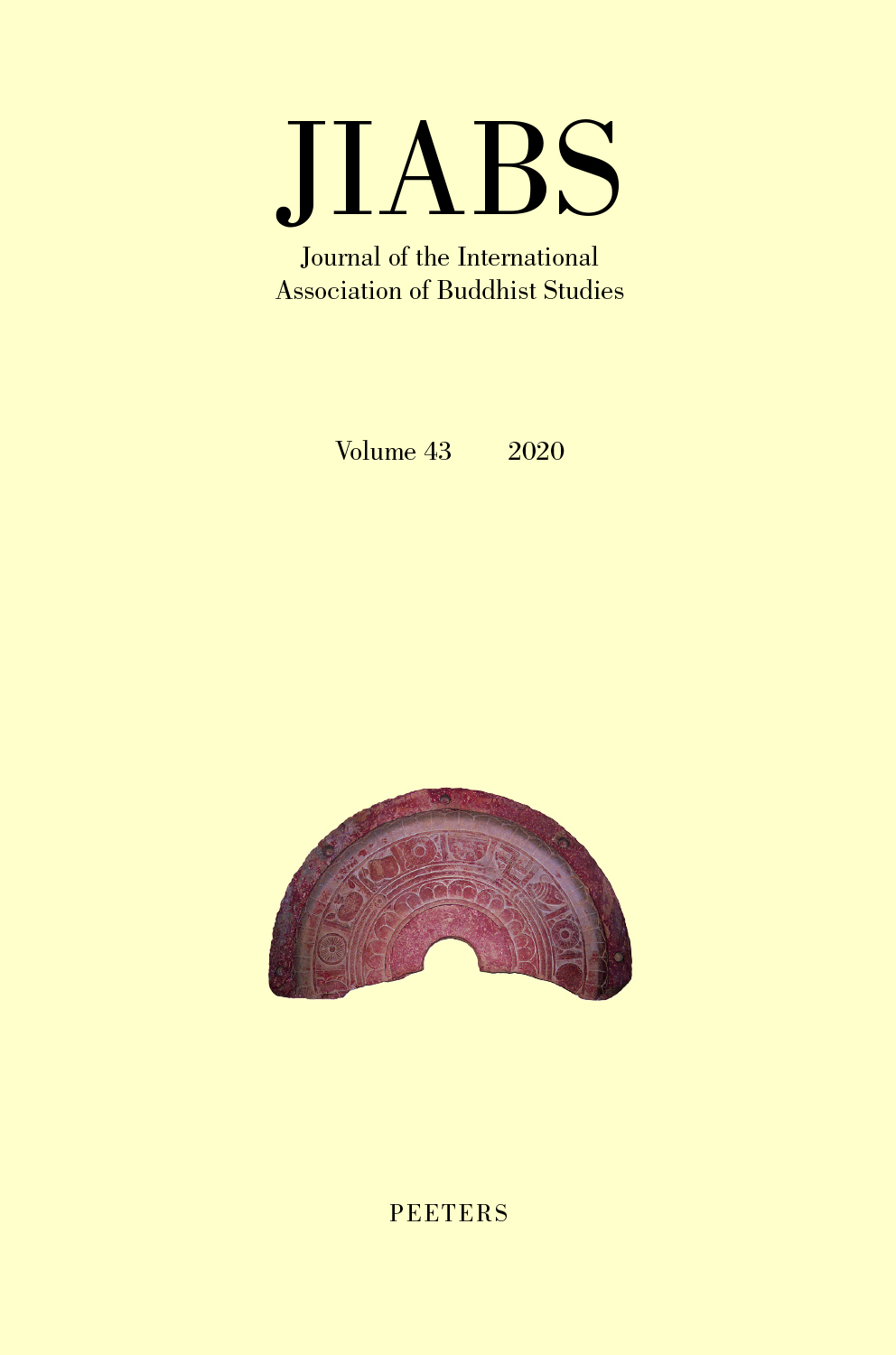 previous article in this issue previous article in this issue | next article in this issue  |

Preview first page |
Document Details : Title: Meditation between Open Skies and Deep Ravines Subtitle: Revisiting the Ethos of Freedom in Great Perfection (Dzogchen) Buddhism Author(s): GEISSHUESLER, Flavio Journal: Journal of the International Association of Buddhist Studies Volume: 45 Date: 2022 Pages: 39-71 DOI: 10.2143/JIABS.45.0.3291576 Abstract : This contribution explores the contemplative system of the famous Tibetan Buddhist tradition known as the Great Perfection (rdzogs chen, Dzogchen), with a special emphasis on 'Direct Transcendence' (thod rgal, Tögal), its most esoteric meditation practice. Scholars have generally argued that this religious tradition is marked by a particular conception of freedom that differs from classical Indian models inasmuch as it is not something that needs to be achieved through effort, but rather something that can simply be recognized as our fundamental nature. Because humans are always and already free, Dzogchen meditation is dominated by such values as naturalness, spontaneity, and effortlessness. Through a close reading of the early scriptures as well as the writings of later exegetes of the tradition, this article critically evaluates this 'ethos of freedom' by showing that Dzogchen is also pervaded by opposite tendencies, such as confinement, limitation, and incarceration. It not only expands on existing scholarship, which has brought to light such constricting tendencies in the philosophical and ethical systems of the Great Perfection, but it also demonstrates that confinement plays a central role in the tradition’s contemplative system overall. More innovatively, this study delves into the visionary practice of Direct Transcendence to reveal that it frequently prioritizes confinement over freedom and active liberation over spontaneous self-recognition. Ultimately, it appears that the ethos of freedom should be altogether abandoned, but it should rather be refined and redefined to account for a dialectical conception of liberation in Dzogchen Buddhism. |
 |


